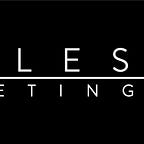In our previous article, I mentioned agenda setting with regard to media influence in pushing for public policies. The word speaks for itself. To break it down for you, this is simply the media setting important information as a key agenda in a news item.
In Public Relations, there are several theories. Agenda setting stands out as a major theory involving the media and the public. This is described as the ability of the media to manipulate and influence the main topics on the public agenda, tweaking public awareness and regard to salient information.
How is this achieved you may ask ? Very Simple. The media is very powerful. It establishes a hierarchy in news prevalence, placing the most important information first. The media then repeatedly covers the story, and this eventually takes away the audience’s capacity to think for themselves.
Let me break it down further for you. Agenda setting is aimed to trigger the cognitive ability of the audience, through accessibility. The human brain will retain information covered by news media frequently and prominently, as that is the topic they see on mass media and think about often. Media bias on salient issues such as politics and the country’s economy take away the audience’s cognitive awareness and influence perception.
It also has effects on the emotive intelligence. When citizens are angry or sad about a public issue, there is a higher chance of advocacy to change than being happy. Therefore, negative emotions trigger awareness rationality, shaping views better.
It is estimated over 30% of news item originate from public relations specialists. Public relations practitioners deliver news information to media houses, so when building agenda, journalists rely on PR specialists. This is through press releases or conferences. It solely comes down to established relationships, especially with gatekeepers. Journalists get stories and PR professionals get their clients on the media’s agenda, Win-Win.
Through agenda setting, PR professionals can influence public interest for their client’s good. This means that they position messages in the media to increase relevance and credibility. In most instances it is aimed at directing public attention towards a social problem for audiences to be more aware and find solutions.
Agenda setting may go both ways. It might or might not influence audience. News consumers may not pay attention to in depth details and therefore disregard the information. It may also sometimes become ‘boring’. Some publics are more assertive and therefore effects of agenda setting is not effective to people who have made up their minds on issues presented by the media.
Think of your country and the media today, is there agenda setting ? If so, what effect has it had on you as a citizen ?
